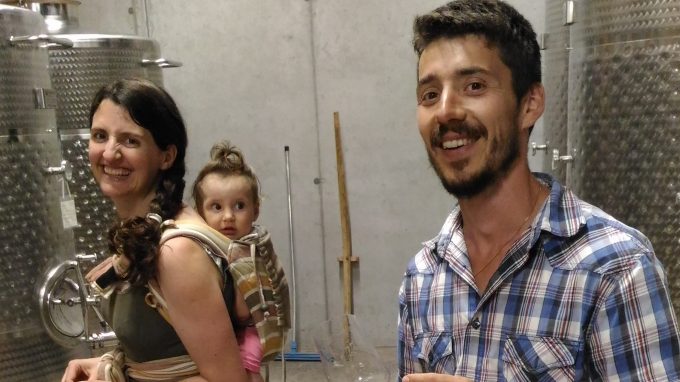
Published
15 January 2019
Tags
Isn’t it time we went Hybrid? The amazing PIWI world of Thomas Niedermayr…
As the Langhe struggles in this humid 2018 year to keep a lid on rampant peronospera (downy mildew), with even organic farmers forced to treat their vines with sulphur & copper up to 15 times already this year, exceeding the organic limit of 6kg per hectare, isn’t it time we went HYBRID?!
PIWI stands for Pilzwiderstandsfähig! Hybrid (not GMO!) grapes that have been developed in Germany at the University of Freiburg since the 18th century. Cross pollinated between a vitis Vinifera & wilder Rupestris varieties to give the grape innate resistance to diseases such as downy & powdery mildew. Hybrid PIWI varieties have enabled the Niedermayr family of Ste Michael Eppan/Santa Michele Appiano in Alto Adige to cut copper & sulphur treatments by approx. 85%, thereby reducing substantially the amount of pesticide residuals in the soils, reducing ground compaction & (tractor) CO2 emissions. Cleaner fruit also means less sulphur is required in the cantine. Cleaner wines, fewer heavy metals means less head banging, right?!
Thomas & his family are producing deliciously pure, expressive white & red wines of the Alto Adige region, both from several hybrid PIWI & one conventional grape varieties, at their small 5ha ‘Hof’ (farm) close to Ste. Michael Eppan/Santa Michele Appiano, & to Bolzano, in the high valley that leads to Kaltern/Caldaro. Here the Dolomitic bedrock is pink porphyry, overlain with calcareous sedimentary stones.
Thomas’s parents, Rudolf & Maria were both born in Appiano. Their farm, Hof Gandberg, which also grows apples, was built in the 1960s at 500-530 metres asl, below the towering peak of the Gand Berg (mountain). The first vine was planted in 1976 & it was the (non PIWI) Weissburgunder/Pinot Bianco, supplying the local cantina sociale; their first wine was made in 1993. It was Rudolf in 1994 who ventured to Germany, to Freiburg, in search of more robust, resistant grape varieties to grow to combat the high fungal pressure of the region. It was there that he came across the hyrbid PIWI (Pilzwiderstandsfähig) varieties.
Rudolf returned from his travels in Germany following the 1990s & proceeded to plant the Niedermayr’s farm Hof Gandberg with resistant PIWI varieties: ‘Sonnrain’ was planted in 1999, ‘Bronner’ (first documented in 1828) in 2004, ‘Souvignier Gris’ in 2006, ‘Cabernet Cantor’ & ‘Cortis’ in 2011, ‘Solaris’ in 2014. And since 2005 they have been creating their own PIWI varieties.
Thomas, one of five children, is a carpenter & trombone playing graduate of the Laimburg wine school in Alto Adige who took over the running of the cantina in 2012. Along with his wife Marlene (& daughter Heidi), they converted to certified organic immediately, adopted PIWI grapes to heart, started propagating their own PIWIs, stopped vine trimming, started using wild yeasts, & neither clarify nor filter their wines!
In 2017 he built a new (wood lined!) cantina under the farm. Vinification is classical, taking place in both stainless-steel & 500 Litre & 12HL oak barrels, notably from the excellent local tonnellerie, Mittelberger. All the whites go through natural, malolactic fermentation & so complete the wines. They have been using the stelvin closure since 1994, but from 2016 Thomas chose to mobile bottle. Total SO2 levels are at between 25 – 45 mg/litro. The crisp, bright wines are fermented close to bone dry.
They are labelled as ‘Mitterberg IGT’ as PIWI grape varieties cannot qualify as DOC Alto Adige!
Isn’t it time we went HYBRID?